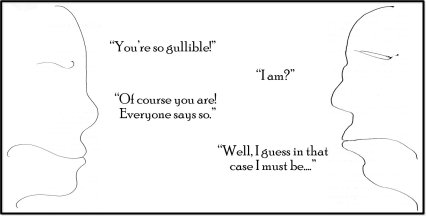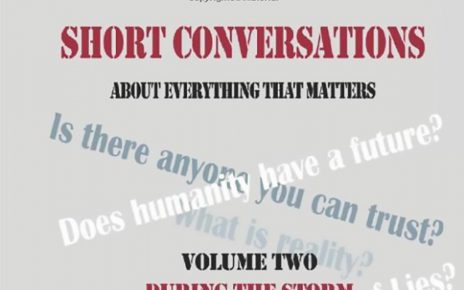1: Where it went wrong
“So,” you ask me, “how did it all turn to shit?”
What, precisely?
“This! This world of ours!”
I nod sagely, as if I’ve a clue what you’re asking.
Luckily you barely pause for breath. “What happened to our dreams of caring for one another, of making this world fairer and kinder for everyone? What happened to our hopes for a brighter, better future?”
Ah.
That…
2: The summer of love
You’re thinking of John Lennon’s Imagine1, aren’t you?
Or dreaming, perhaps, of a dream once dreamt by Martin Luther King2…
Or maybe you’re harking back to the optimism of the hippies in their everlasting summer of love3?
Well, all of that is admirable enough.
Maybe it’s the fall of the Berlin Wall that once captured your imagination and inspired you. Or maybe it was punk rock, or hip hop, or Occupy, or WikiLeaks – or just the thought of ordinary folk finally getting their say…
That sort of thing…
3: It keeps happening
And, when you think of it, it’s a striking question. What happened to all of that? All the optimism? All that hope for a better future?
What happened to our dreams of a happy, prosperous, peaceful world?
I have to admit, I’m kind of stuck for an answer…
Because it’s not just recently that it all turned to shit.
It keeps happening.
Over and over.

4: Fateful revolutions
We could go back a little, if you like. We could ask, “What happened to the socialism of Jesus?”4 Or “What happened to the environmentalism of Shinto or the Buddha?5” Or “What happened to the feminism of Mohamed?6 and the humanism of Confucius7?”
More recently than that, we might wonder, with a fair degree of wistfulness, about the fate of the Enlightenment or the French Revolution, the American War of Independence or the Russian revolution – or glasnost8, or the socialism of Latin America, or the orange revolution9, or the Arab Spring…
We might ask, “Why do we so often resign ourselves to the disappointment of a broken world?”
5: A creeping clusterf**k
It’s a question I’d like to try to answer… but give me a moment…
It’s a big and complex question needing a big and complex answer, but I’d like to keep this conversation short.
Ok, here’s what I think.
I think the shit creeps up on us.
This political sh*tfest?
It’s the near-inevitable result of something pretty sneaky – which keeps blindsiding the idealists, the visionaries, the champions of humanism, the great environmentalists, the heroes of equality or socialism or compassion.
6: Spectra
Imagine for a moment that there’s a spectrum of human gullibility.
It’s not elitist to suggest such a thing. It has to exist: all human traits have their range.
For instance, some of us are tall, some of us less so – and you get a scattering of every conceivable height in between.
Some of us are insect thin while others are hippopotamus plump – and the rest of us fall somewhere in between.
It’s natural.
Would you want everyone to be the same?

7: Gullibility
So you have very gullible folk at one end of the spectrum of gullibility; and you have the least gullible folk at the other.
And then you have whole populations of people scattered on a bell curve between these two extremes.
8: Morality
Now let’s consider another spectrum, one that’s a little more challenging.
The spectrum of morality.
Some folk are very moral…
Some folk are middling-moral…
And some folk wouldn’t know morality if it walked up and slapped them in the face10.
This isn’t being judgemental. It’s simply statistics.
9: One population, two spectra
So we have two spectra, side by side, one of gullibility and one of morality, running through all human populations.
Can you see the immediate temptation? A temptation that’s wrecked our best attempts at decent societies so very many times?
10: Epiphany
The temptation is this: that those at the bottom of the morality spectrum will look across at those at the top of the gullibility spectrum and experience an epiphany.
“Hey!” they’ll tell themselves. “I can’t believe my luck! Look at all those gullible folk! They’ll believe anything I say!”
11: The saddle
It’s a powerful combination.
Can’t you just see it?
The wicked hoisting themselves up onto the saddle of the gullible and digging their spurs into society’s underbelly. “Giddyup! Giddyup! Go, boy, go!” – and off we go, careering downhill all the way.
It’s such a powerful combination! – capable of derailing any idealism or high hopes – the immoral taking the gullible for a ride.
And it’s happened time and time again throughout human history. And it’s happening right now.

12: A good place
“Is that it?” you ask. “There’s nothing we can do? It’s just a matter of statistics, of human demographics? An Achilles’ Heel in our nature which our nature will never let us heal?”
Well, I won’t pretend it’s looking good.
Here we are, CE 202011, and we find ourselves in the midst of a perfect storm: political corruption, populist lies, jingoistic nationalism, surging authoritarianism and the corporate/billionaire takeover of just about everything…
None of which puts us in a good place for handling the most important threats of our time: pandemics; capitalism gorging itself into a stupor; the approach of climate change; resource depletion; unregulated gene modification, surveillance and AI; and even doubts about that simplest of objectives: feeding ourselves in the years to come12.
13: Hope
And yet… things are not hopeless13.
“They’re not?”
No, they’re not.
They only seem hopeless if you forget who we are, if you forget the astounding achievements of our civilisation, of our species. If you forget our incredible capability and ingenuity as human beings.
“But you’ve described a mechanism which undermines our every aspiration and dream….”
Yes, I have – so I’d better describe a way of tackling that.

14: A sideways shift
We have the spectrum of gullibility.
And we have the spectrum of morality.
And we see, all around us, the catastrophic results of the wicked exploiting the gullible – overturning the aspirations of the moral and the good.
So, if we’re to survive as a society and a species we must make our exploitation both more difficult and less likely. We must make the gullible less gullible and the immoral more moral.
But is that possible? Can it be done?
15: Tactical
It can.
There are two tactics at our disposal, and we must deploy both.
The first tactic is to teach one another how to be more sceptical, more analytical, and how to tackle the lies others tell us and the lies we tell ourselves.
I’ve written a book called Ethical Intelligence which offers some techniques for achieving this.
The second tactic is to embrace an ethics suited to the challenges of the 21st Century – an ethics rooted in the very essence of what we are: in life itself – and to encourage others to embrace this ethics too.
I’ve written a book called Intelligent Ethics which makes the case for such a morality, based on caring for those around us, caring for all humanity and caring for the biological world.
You see, clear thinking and morality have become survival traits for our species (and perhaps they always were). So we must shift entire populations down the spectrum of gullibility towards scepticism and analysis; and we must shift entire populations up the spectrum of morality towards kindness and compassion.
And we need to do these things ethically, through education, explanation and example.
It’s a big ask… but surely it’s worth a try?
www.ethicalintelligence.org “The ethics of common sense”
Twitter & Facebook: @EthicalRenewal
References/Notes
© Luke Andreski 2020. All rights reserved.




